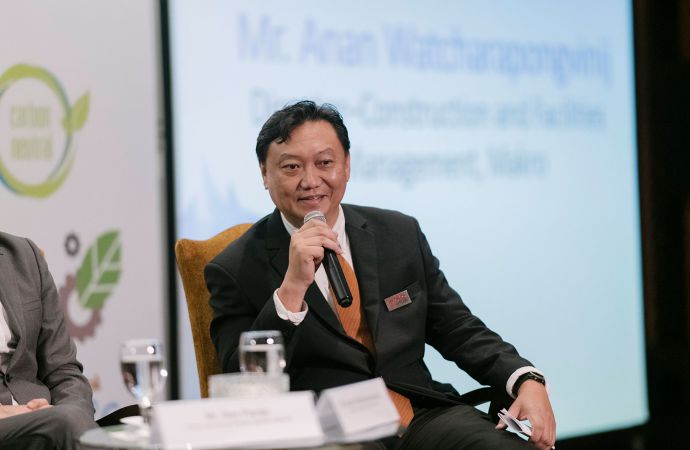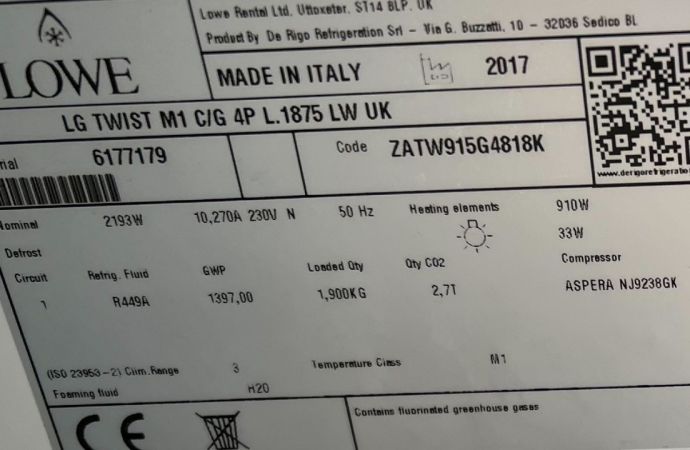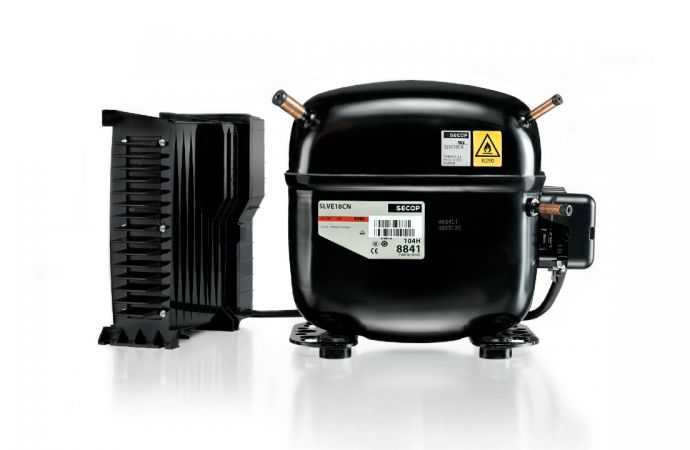The company runs more than 10,000 green refrigerant plug-in refrigerators and freezers.

Anan Watcharapongvinij, Ph.D., Director-Construction and Facilities Management, SIAM MAKRO PLC. Photo by GIZ.
SIAM MAKRO PLC. (Makro), one of Thailand's largest membership-based food wholesalers, spoke about the energy efficiency benefits and safety track record of its propane (R290) 10,000 plug-in display cases at its stores throughout Thailand during the RAC NAMA Fund event held on February 17 in Bangkok, Thailand.
The Refrigeration and Air Conditioning Nationally Appropriate Mitigation Action (RAC NAMA) project provides financial, technological and policy support to Thailand’s refrigeration and air conditioning industry; the RAC NAMA Fund is the main financial instrument for the project.
"Energy efficiency and environmental consciousness are two key values that our company follows," said Anan Watcharapongvinij, Director-Construction and Facilities Management at Makro, during a panel session titled, “Green Cooling Talk — Global Trend and Thai Perspective.” "We are truly supportive of this and have been following this trend of using green refrigerants in our cabinets and refrigerators for over 13 years. Today, we have about 10,000 plug-in R290 units running in our stores."
Makro, which has around 130 outlets, provides food products to retail businesses, restaurants, caterers, and other business operators throughout Thailand. "Thirty to forty percent of total energy consumption comes from our refrigeration systems," said Watcharapongvinij. "Today, we are really glad we are receiving support from the government to support this initiative since it will help reduce costs not only for us but also for our customers."
Watcharapongvinij added that the energy savings offered by the R290 units helped him convince top management within the company to adopt the technology. He advised others to use this approach when introducing the topic to their own decision makers. "I think the most simple way is to look at energy efficiency," said Watcharapongvinij. "It can be one of the key milestones that can go back to return on investment and cost savings. This is a good starting point for the business case." Initial costs as well, Watcharapongvinij said, are a lot lower now compared to 13 years ago. "These are key advantages and key messages that you can bring to the front of the attention of key management."
Watcharapongvinij was also aware that the international standard for charge size limitations on R290 in commercial refrigerators has been increased to 500g and that it could open up new opportunities for using R290 in larger equipment.
Watcharapongvinij said that the company is also currently looking into options with R290 water-loop systems. "We have found that water-loop systems are good for small-size enterprises, but we are larger, so we are looking for larger scale water-loop systems. We are in the research process now. If we get incentives and support from the government, we can progress a lot further."
Green cooling revolution
Also participating on the panel during the event was Alex Panas, Group Commercial Director for Sanden Intercool, who highlighted the company's progress in adopting R290 and CO2 in its commercial refrigeration equipment manufacturing business. The company, which has a manufacturing capacity of 500,000 units per year, already offers more than 70% of its equipment sales with R290. It aims to have its entire product range use natural refrigerants, in particular hydrocarbons and CO2 by 2022.

Sanden Intercool has participated in the RAC NAMA initiative and received support from the program to convert its production lines to R290.
"I think we are very close to achieving this green cooling revolution," said Panas. "All the important stakeholders are present here today and you can see from what has been said that we all now have a common goal and understanding."
Related stories



